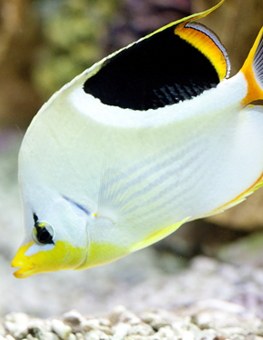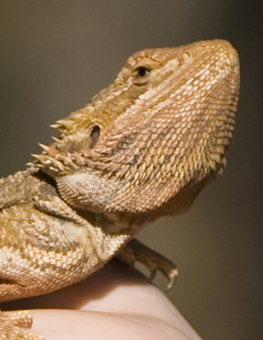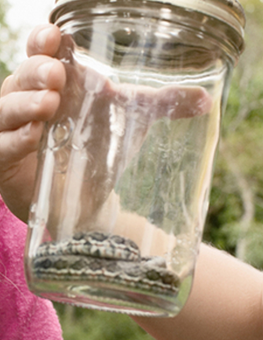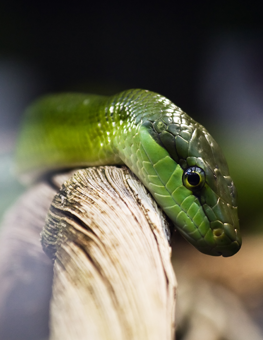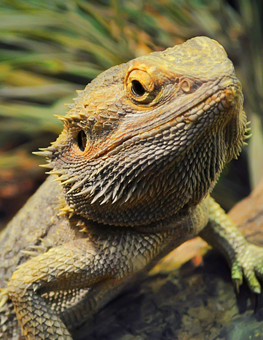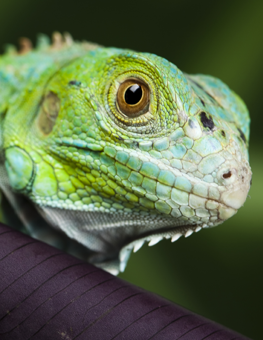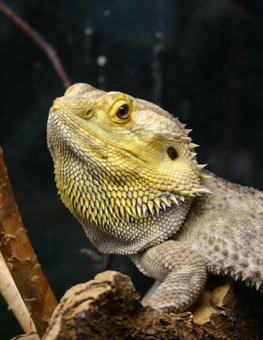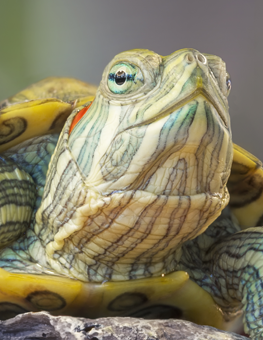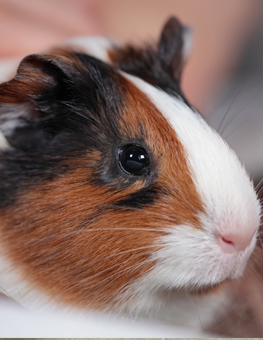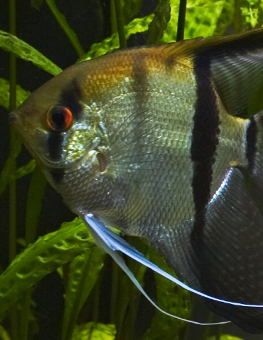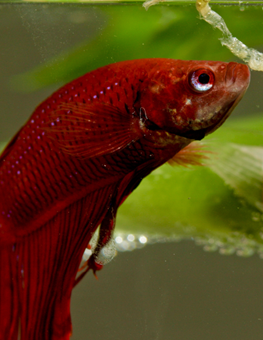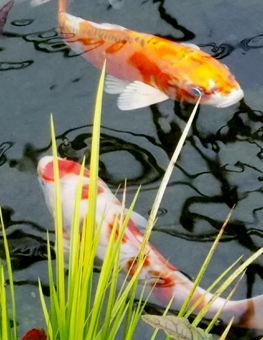Oral Care for Your Reptile
It may surprise you to know that reptiles need dental and oral care.
Your pet is vulnerable to a host of health problems stemming from his own mouth. The most common dental condition is mouth rot. Mouth rot, or Ulcerative Stomatitis, is an infection of your lizard's gums and mouth caused by small cuts and food stuck in his teeth. If left untreated, the infection could kill your reptile. Snakes and lizards are especially vulnerable to the disease. Luckily, mouth rot is very easy to monitor and care for.
What to look for
Check your reptile's mouth for food stuck between his teeth and gums, and for any cuts in the mouth tissue. If you do find any of these markings, look for more developed symptoms of mouth rot such as:
- Decreased intake of water
- Lack of interest in food
- Thickening of saliva
- Yellow plaques in soft oral tissue
- Yellow cheesy pus in and around the mouth
- Swelling of gums and oral tissue
- Swelling of the face and head (typically in advanced cases only)
Contact your veterinarian immediately if you spot any of these signs. Left untreated, a potentially deadly infection could develop.
How to treat infection
Your veterinarian will prescribe antibiotics and teach you how to clean the infected areas in the mouth. Please keep the following in mind when treating mouth rot or other health issues:
- This is a serious problem that requires professional treatment.
- Even the mildest of human medicines can be dangerous to your pet, so never medicate on your own. Hydrogen peroxide, for example, can destroy the delicate healthy tissue in your reptile's mouth.
- Accidentally aspirating your pet is not unheard of, so training from your vet is essential.
How to prevent infections
The easiest way to avoid mouth rot is to take your pet for yearly checkups and to generally take proper care of him. Below are some smart practices to follow for avoiding health problems:
- Proper environmental temperature and humidity are crucial for good reptile health, as is sufficient space.
- Your reptile's habitat should also include a hiding box or shelter where he can go to rest.
- His diet should be plentiful and nutritious.
- When examining your pet, if you don't see signs of mouth rot but you do see food or substrate stuck inside, gently open his mouth and remove the item with a soft cotton swap.
- Be very careful with your pet's mouth: it's very easy to break and damage the jaws, or even injure another part of your pet's body during handling.
- Bear in mind that the smaller the reptile, the more fragile they are.
- If you have never tried to open your pet's mouth before, consult your vet for tips on how to handle and restrain your pet.
Mouth rot is not a disease in itself, it is a secondary condition caused by an infection. Strong, healthy reptiles are at very little risk.




